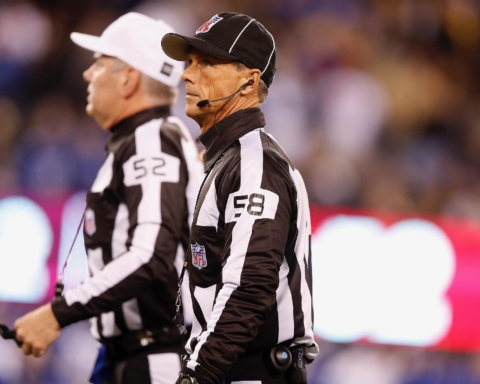By Matt Villanueva, Features Assignment Editor
Stone’s Rule: “It’s better to be infamous than not famous at all.”
In November of 2019, Roger Stone was convicted of seven felonies including witness tampering, obstruction of an official proceeding and lying to investigators, following the Mueller Report. Stone is a Republican political consultant and Richard Nixon fanatic. With Nixon’s face chiseled onto his right lat, Stone has been one of the most outrageous figures in American politics of the 21st century.
Recently Stone has been in the news due to the aftermath of his November trial. On Feb. 10, prosecutors from the U. S. Attorney’s office requested that Stone be sentenced for 10 years as he was convicted of all seven charges.
Donald Trump responded to the potential sentencing on his Twitter, “A horrible and very unfair situation. Cannot allow this miscarriage of justice!”
The next morning, a senior Justice Department official said the department would recommend a lighter sentence, adding that the decision had been made before Trump commented. That afternoon the Department of Justice filed a revised sentencing memorandum, saying the initial recommendation could be “considered excessive and unwarranted under the circumstances.” All four of the Assistant US Attorneys who were prosecuting the case – Jonathan Kravis, Aaron Zelinsky, Adam Jed and Michael Marando – withdrew from the case, with Kravis resigning from the US Attorney’s Office altogether.
Trump later said he did not ask the Justice Department to recommend a lighter sentence, but also asserted he had an “absolute right” to intervene.
Until recently, the US Attorney for Washington was Jesse K. Liu. She oversaw the Stone case until Attorney’s General, William Barr, removed her and instilled a close aide to oversee the case. Late last year, she was nominated by Trump to a high up Treasury department position. She is no longer in line for that position.
In a recent interview Donald Trump said that employing a presidential pardon on Mr. Stone is “Not out of the question.”
But why is Roger Stone so important?
After Nixon’s presidential collapse, Stone continued to lobby for the Republican Party. He campaigned and worked for Ronald Reagan, Jack Kemp, Bob Dole and Donald Trump’s campaigns.
In between campaigns he established one of the largest law firms in Washington D.C., Black, Manafort, Stone and Kelly (BMSK). BMSK became one of the largest lobbying firms due to White House connections and their high paying clients.
Stone consulted on the Trump presidency and has been one of his most outlandish supporters since before his announcement to run. He even claims that he encouraged Trump to run as early as 1998 when Stone was lobbying for Trump and his casinos.
Stone self-proclaimed himself as a “dirty-old trickster,” a “seasoned practitioner of hard-edged politics,” a “malicious windbag” and a political fixer. Throughout Trump’s 2016 campaign, Stone went on every news outlet he could get on and promoted conspiracies on Trump’s democratic rivals.
Although Stone eventually left the Trump campaign, he still was a vocal supporter and conspirator against the Clintons. He even conspired with WikiLeaks founder Julian Assange to try to discredit Hilary Clinton through the infamous email scandal.
Roger Stone is one of the most dangerous, loud—yet unfamiliar—villains in American politics. And if Donald Trump uses his presidential power to pardon the Nixon-loving consultant, he is deliberately abusing his power as president to save his friend and crumple up the little remainder of the integrity left in the American political system.
villanjv18@bonaventure.edu





